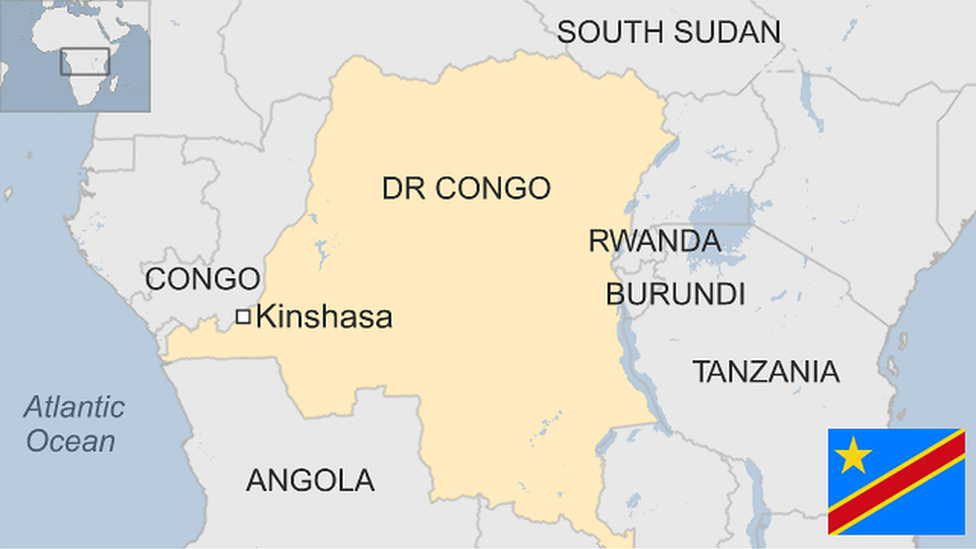DR Congo President Kabila warns against foreign meddling
- Published
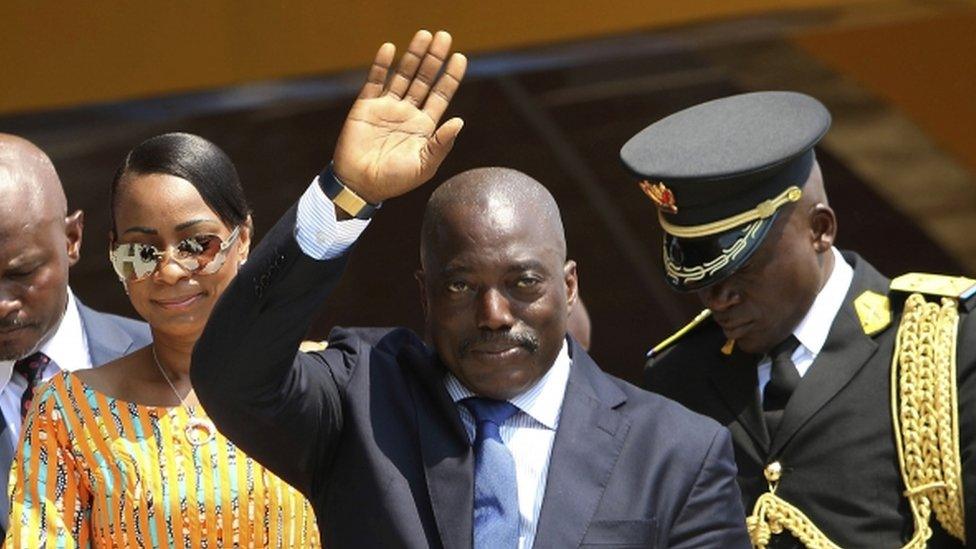
President Kabila came to power in 2001
The Democratic Republic of Congo will not tolerate any foreign interference in the country's electoral process, President Joseph Kabila has said.
He told MPs in the capital, Kinshasa, that he will name an opposition prime minister within the next 48 hours to lead the country to the polls.
He has been under pressure to salvage a political deal after it collapsed last week, leaving the country on edge.
Critics said he delayed the elections on purpose to hang on to power.
Mr Kabila was supposed to step down after his second and final term came to an end last year but the vote to replace him was not held.
The electoral commission cited financial and logistical difficulties.
The failure to organise the polls led to a wave of deadly demonstrations by opposition supporters, with calls from diplomats for the president to respect the constitution.
The Catholic Church stepped in to broker a deal right at the end of last year which outlined the creation of a transitional government that would oversee the elections.
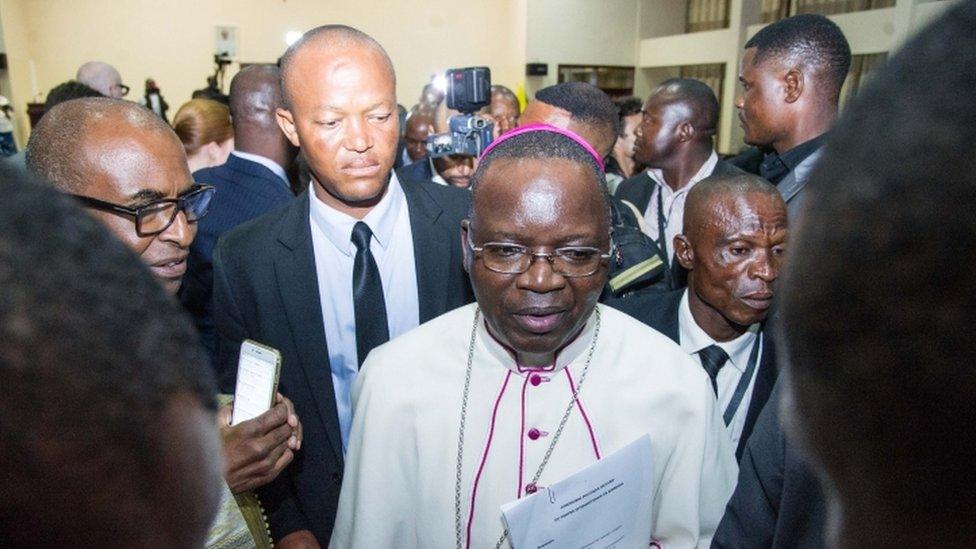
Archbishop Marcel Utembi of the National Episcopal Conference of Congo had called Mr Kabila to save the failed deal
The deal collapsed because the government and the opposition were unable to agree on the power-sharing mechanism under the arrangement.
In response to calls by the Catholic bishops, Mr Kabila told MPs the polls will go ahead as planned.
"I would like to solemnly announce to our people that the elections will be held. That those who are still in doubt we will stick to the electoral calendar," Mr Kabila said.
"This process is the work of the Congolese, financed by the Congolese people themselves, without any foreign interference," he added.
Mr Kabila's address came days after the UN Security council voted to downsize Monusco, its peacekeeping mission in the country.
Before the vote, US ambassador to the UN Nikki Hailey blamed the organisation for partnering with a "corrupt" government in Congo, which she said works against the interests of its people.
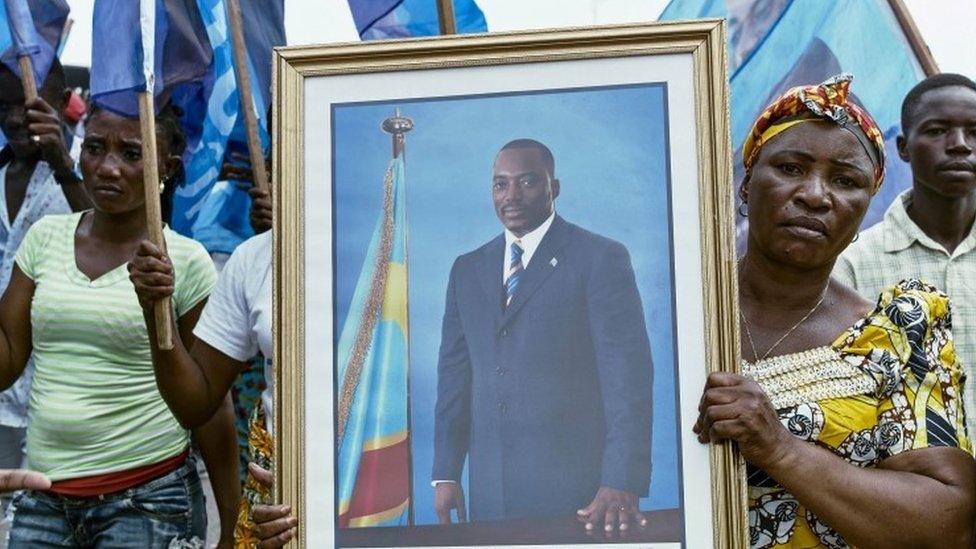
President Kabila's supporters gathered to hear what he had to say to parliament
Mr Kabila did not refer to the US criticism of his government but he vowed to defend the independence of the DR Congo.
"It is our duty to stand up for our independence and the national sovereignty," he said.
He then announced that he will soon name an opposition prime minister for the transitional government that will lead the country ahead of elections due at the end of the year.
The president set a 48-hour deadline for the opposition to overcome its "internal disagreements" and table a list of names to be considered.
- Published28 March 2017
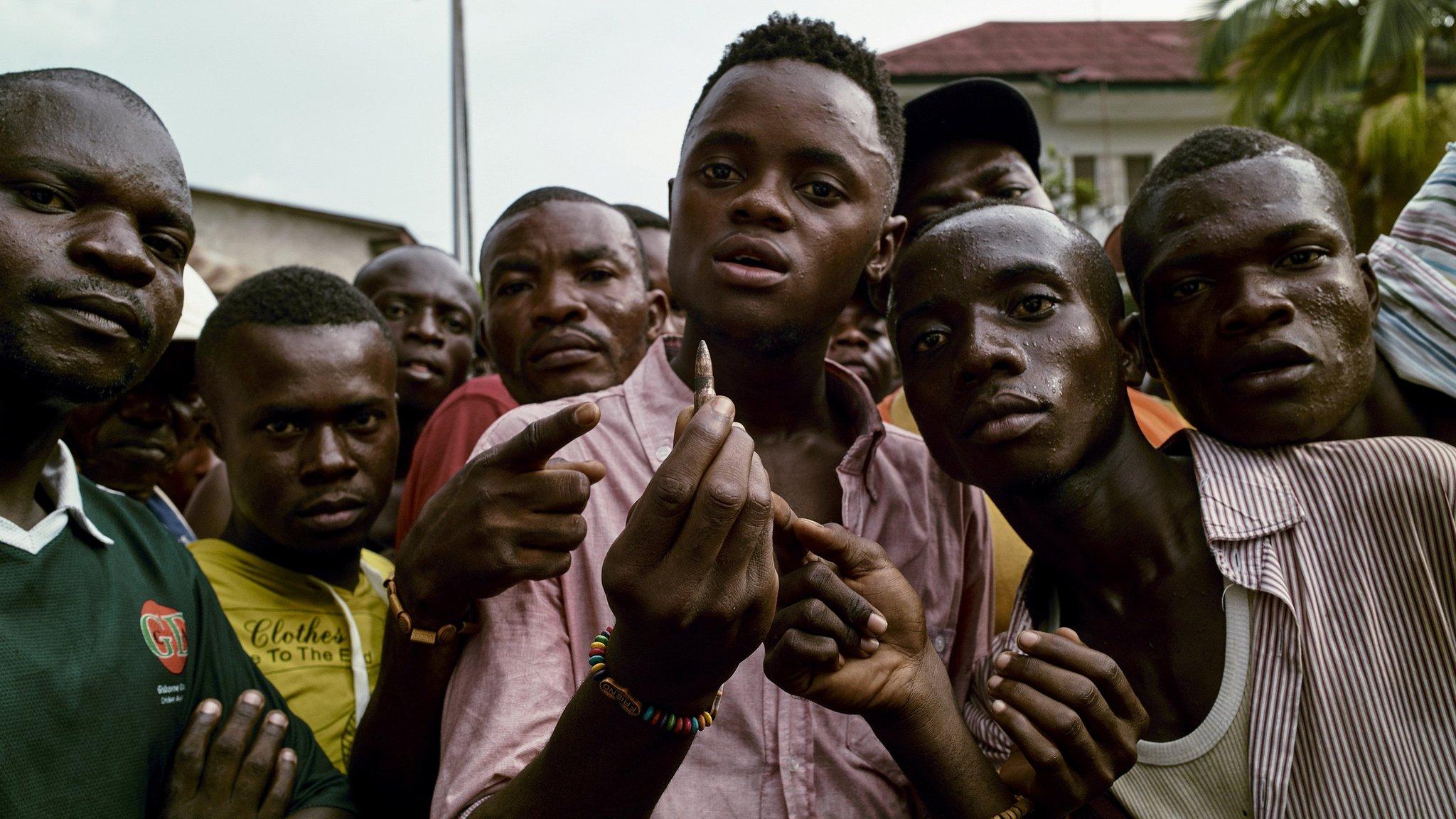
- Published20 December 2016
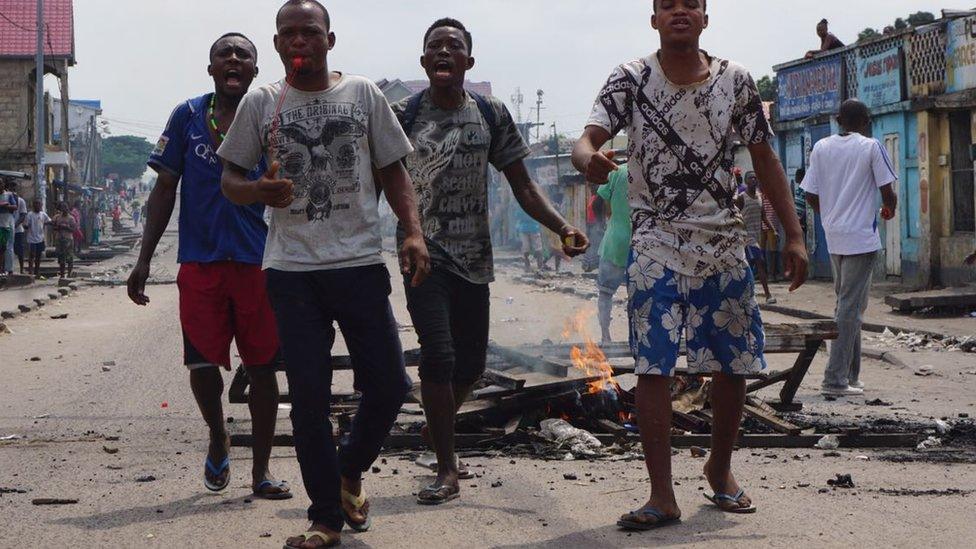
- Published31 January
